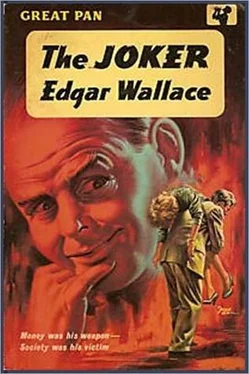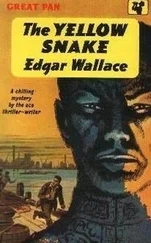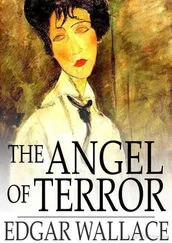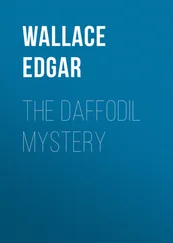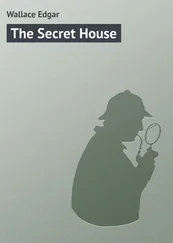Edgar Wallace - The Joker
Здесь есть возможность читать онлайн «Edgar Wallace - The Joker» весь текст электронной книги совершенно бесплатно (целиком полную версию без сокращений). В некоторых случаях можно слушать аудио, скачать через торрент в формате fb2 и присутствует краткое содержание. Год выпуска: 0101, Жанр: Старинная литература, на английском языке. Описание произведения, (предисловие) а так же отзывы посетителей доступны на портале библиотеки ЛибКат.
- Название:The Joker
- Автор:
- Жанр:
- Год:0101
- ISBN:нет данных
- Рейтинг книги:5 / 5. Голосов: 1
-
Избранное:Добавить в избранное
- Отзывы:
-
Ваша оценка:
- 100
- 1
- 2
- 3
- 4
- 5
The Joker: краткое содержание, описание и аннотация
Предлагаем к чтению аннотацию, описание, краткое содержание или предисловие (зависит от того, что написал сам автор книги «The Joker»). Если вы не нашли необходимую информацию о книге — напишите в комментариях, мы постараемся отыскать её.
The Joker — читать онлайн бесплатно полную книгу (весь текст) целиком
Ниже представлен текст книги, разбитый по страницам. Система сохранения места последней прочитанной страницы, позволяет с удобством читать онлайн бесплатно книгу «The Joker», без необходимости каждый раз заново искать на чём Вы остановились. Поставьте закладку, и сможете в любой момент перейти на страницу, на которой закончили чтение.
Интервал:
Закладка:
He had had bad luck with his horses, bad luck with his family. Mrs Ellenbury was an invalid. No doctor had ever discovered the nature of her illness. One West End specialist seen her and had advised the calling in of another. The second specialist had suggested that it would be advisable to see a third. The third had come and asked questions. Had any other parents suffered from illusions? Were they hysterical? Didn’t Mrs Ellenbury think that if she made an effort she could get up from her bed for, say, half an hour a day?
The truth was that Mrs Ellenbury, having during her life experienced most of the sensations which are peculiar to womankind, having walked and worked, directed servants, given little parties, made calls, visited the theatre, played croquet and tennis, had decided some twenty years ago that there was nothing quite as comfortable as staying in bed.
So she became an invalid, had a treble subscription at a library and acquired a very considerable acquaintance with the rottenness of society, as depicted by authors who were authorities on misunderstood wives.
In a sense Mr Ellenbury was quite content that this condition of affairs should be as it was. Once he was satisfied that his wife, in whom he had the most friendly interest, was suffering no pain, he was satisfied to return to the bachelor life. Every morning and every night (when he returned home at a reasonable hour) he went into her room and asked: ‘How are we today?’
‘About the same—certainly no worse.’
‘That’s fine! Is there anything you want?’
‘No, thank you—I have everything.’
This exchange varied slightly from day to day, but generally it followed on those lines.
Ellenbury had come back late from Ratas after a tiring day. Usually he directed the Rata Syndicate from his own office; indeed, he had never before appeared visibly in the operations of the company. But this new coup of Harlow’s was on so gigantic a scale that he must appear in the daylight; and his connection with a concern suspected by every reputable firm in the City must be public property. And that hurt him. He, who had secretly robbed his clients, who is had engaged in systematic embezzlement and might now, but for the intervention and help of Mr Stratford Harlow, have been an inmate of Dartmoor, walked with shame under the stigma of his known connection with a firm which was openly described as unsavoury.
He was a creature of Harlow, his slave. This sore place in his self-esteem had never healed. It was his recreation to brood upon the ignominy of his lot. He hated Harlow with a malignity that none, seeing his mild, worn face, would suspect.
To him Stratford Harlow was the very incarnation of evil, a devil on earth who had bound his soul in fetters of brass. And of late he had embarked upon a novel course of dreaming. It was the confused middle of a dream, having neither beginning nor end, but it was all about a humiliated Harlow; Harlow being dragged in chains through the Awful Arch; Harlow robbed at the apotheosis of his triumph. And always Ellenbury was there, leering, chuckling, pointing a derisive finger at the man he had ruined, or else he was flitting by midnight across the Channel with a suitcase packed with fabulous sums of money that he had filched from his master.
Mr Ellenbury bit his nails.
Soon money would be flowing into Ratas—he would spend days endorsing cheques, clearing drafts…drafts…
You may pass a draft into a bank and it becomes a number of figures in a pass-book. On the other hand, you may hand it across the counter and receive real money.
Sometimes Harlow preferred that method—dollars into sterling, sterling into Swiss francs, Swiss francs into florins, until the identity of the original payment was beyond recognition.
Drafts…
In the room above his head his wife was lying immersed in the self-revelations of a fictional countess. Mrs Ellenbury had little money of her own. The house was her property. He could augment her income by judicious remittances.
Drafts…
Mauve and blue and red. ‘Pay to the order of—’ so many thousand dollars, or rupees, or yen.
Harlow never interfered. He gave exact instructions as to how the money was to be dealt with, into which accounts it must be paid and that was all. At the end of a transaction he threw a thousand or two at his assistant, as a bone to a dog.
Ellenbury had never been so rich in his life as he was now.
He could meet his bank manager without a sinking feeling in the pit of his stomach—no longer did the sight of a strange man walking up the drive to the house fill him with a sense of foreboding. Yet once he had seen the sheriff’s officer in every stranger.
But he had grown accustomed to prosperity; it had become a normal condition of life and freed his mind to hate the source of his affluence.
A slave—at best a freedman. If Harlow crooked his finger he must run to him; if Harlow on a motoring tour wired ‘Meet me at—’ any inaccessible spot, he must drop his work and hurry there. He, Franklin Ellenbury, an officer of the High Court of Justice, a graduate of a great university, a man of sensibility and genius.
No wonder Mr Ellenbury bit at his nails and thought of drafts and sunny cafes and picture galleries which he had long desired to visit; and perhaps, after he was sated with the novelty of travel, a villa near Florence with orange groves and masses of bougainvillaea clustering between white walls and jade-green jalousies.
‘A gentleman to see you, sir.’
He aroused himself from his dreams with a painful start.
‘To see me?’ The clock on his desk said fifteen minutes after eleven. All the house save the weary maid was asleep. ‘But at this hour? Who is he? What does he want?’
‘He’s outside, in a big car.’
Automatically he sprang to his feet and ran out of the room. Harlow! How like the swine, not condescending to alight, but summoning his Thing to his chariot wheels! ‘Is that you, Ellenbury?’ The voice that spoke from. the darkness of the car was his.
‘Yes, Mr Harlow.’
‘You’ll be getting inquiries about the Gibbins woman—probably tomorrow. Carlton is certain to call—he has found that the letters were posted from Norwood. Why didn’t you post them in town?’
‘I thought—er—well, I wanted to keep the business away from my office.’
‘You could still have posted them in town. Don’t try to hide up the fact that you sent those letters. Mrs Gibbins was an old family servant of yours. You told me once that you had a woman with a similar name in your employ—’
‘She’s dead—’ began Ellenbury.
‘So much the easier for you to lie!’ was the answer. ‘Is everything going smoothly at Ratas?’
‘Everything, Mr Harlow.’
‘Good!’
The lawyer stood at the foot of the steps watching the carmine rear light of the car until it vanished on the road.
That was Harlow! Requesting nothing—just ordering. Saying ‘Let this be done,’ and never doubting that it would be done.
He went slowly back to his study, dismissed the servant to bed; and until the early hours of the morning was studying a continental timetable—Madrid, Munich, Cordova, Bucharest—delightful places all.
As he passed his wife’s bedroom she called him and he went in.
‘I’m not at all well tonight,’ she said fretfully. ‘I can’t sleep.’
He comforted her with words, knowing that at ten o’clock that night she had eaten a supper that would have satisfied an agricultural labourer.
CHAPTER 14
MR HARLOW had timed his warning well. He had the general’s gift of foretelling his enemy’s movements.
Jim called the next morning at the lawyer’s office in Theobald’s Road; and when the dour clerk denied him an interview, he produced his card.
Читать дальшеИнтервал:
Закладка:
Похожие книги на «The Joker»
Представляем Вашему вниманию похожие книги на «The Joker» списком для выбора. Мы отобрали схожую по названию и смыслу литературу в надежде предоставить читателям больше вариантов отыскать новые, интересные, ещё непрочитанные произведения.
Обсуждение, отзывы о книге «The Joker» и просто собственные мнения читателей. Оставьте ваши комментарии, напишите, что Вы думаете о произведении, его смысле или главных героях. Укажите что конкретно понравилось, а что нет, и почему Вы так считаете.
